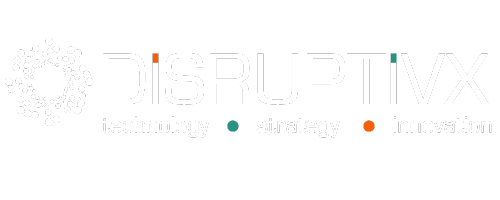In an era where data is hailed as the new oil, the potential for organisations to drive insights and make informed decisions is unprecedented. However, to effectively leverage this resource, it’s imperative for businesses to cultivate a data-driven culture. A data-driven culture places data at the heart of decision-making processes and empowers employees at all levels to use data in their day-to-day roles. This article delves into the steps business leaders can take to cultivate such a culture in their organisations.
Understanding the Importance of a Data-Driven Culture
A data-driven culture is a competitive differentiator. It accelerates decision-making, drives efficiency, and allows organisations to proactively address market changes. A case in point is Australia’s own Wesfarmers, one of the largest companies in the country. Wesfarmers leverages data analytics extensively across its varied businesses to drive efficiency and growth. Through the use of data, Wesfarmers has been able to optimise supply chain processes, drive customer engagement, and improve operational efficiency.
Steps to Building a Data-Driven Culture
Leadership Buy-in
Leaders play a crucial role in fostering a data-driven culture. They need to lead by example by integrating data-driven decision-making into their own practices and demonstrating its value. This includes being open about how they use data in their decisions and highlighting the benefits. For instance, former Telstra CEO David Thodey used data extensively in driving decisions that led to a customer-centric transformation in the company. His approach demonstrated the power of data and fostered a culture where data became a critical tool for strategic decision-making.
Invest in the Right Tools
Investing in the right tools is key to making data accessible and usable for everyone in the organisation. These could range from data collection and analysis tools, such as Tableau and Power BI, to AI-powered platforms that can unearth insights from vast volumes of data. The Commonwealth Bank of Australia provides an excellent example. They have invested in cutting-edge data analysis tools, which are extensively used across the bank to enable more personalised customer interactions, improve risk management, and drive operational efficiency.
Data Literacy Training
Training is crucial to equip your team with the skills needed to understand, interpret, and use data effectively. Consider comprehensive training programs that cover fundamental statistical concepts, data visualisation techniques, and the use of data analysis tools. One standout example is ANZ Bank’s data literacy program. The bank launched a widespread training program to boost data literacy across its workforce, equipping employees with the skills to leverage data for day-to-day decisions and strategic initiatives.
A data-driven culture thrives on curiosity. Encourage your team to probe deeper into data, challenge assumptions, and discover new insights. This mindset can lead to innovative solutions and continuous improvement. The Australian insurance giant IAG exemplifies this approach. They have developed an innovation hub where employees are encouraged to explore and experiment with data, leading to numerous successful data-driven initiatives.
Foster a Curiosity Mindset
A data-driven culture thrives on curiosity. Encourage your team to probe deeper into data, challenge assumptions, and discover new insights. This mindset can lead to innovative solutions and continuous improvement. The Australian insurance giant IAG exemplifies this approach. They have developed an innovation hub where employees are encouraged to explore and experiment with data, leading to numerous successful data-driven initiatives.
Reward Data-Driven Decision Making
Reward and recognition programs that highlight data-driven success stories can reinforce the importance of data in decision-making. By recognising teams and individuals who successfully leverage data, you create a positive reinforcement loop that encourages the continued use of data. An Australian retail giant, Woolworths, follows this strategy by recognising and rewarding the impactful use of data within their business units.
In Conclusion
Building a data-driven culture is not a one-off initiative but a continuous journey. It takes commitment from all levels of the organisation and requires the right mix of leadership, tools, training, and mindset. The rewards, however, are worth it – faster, more informed decision-making, greater operational efficiency, and a deeper understanding of your customers and market.
Let there be change
How DisruptivX Can Support Your Journey Towards a Data-Driven Culture?
For more information on how DisruptivX can support your journey towards a data-driven culture, please get in touch with us today. Our goal is to help you transform data from an under utilised asset into a core driver of decision-making and business growth.
At DisruptivX, we are passionate about helping organisations unlock the power of their data. Our team of consultants can guide you in setting up the right systems and processes, selecting the most suitable data tools, and training your teams to effectively utilise data. Furthermore, we can help in defining the right data strategy, one that ensures that your data drives real value for your business.

